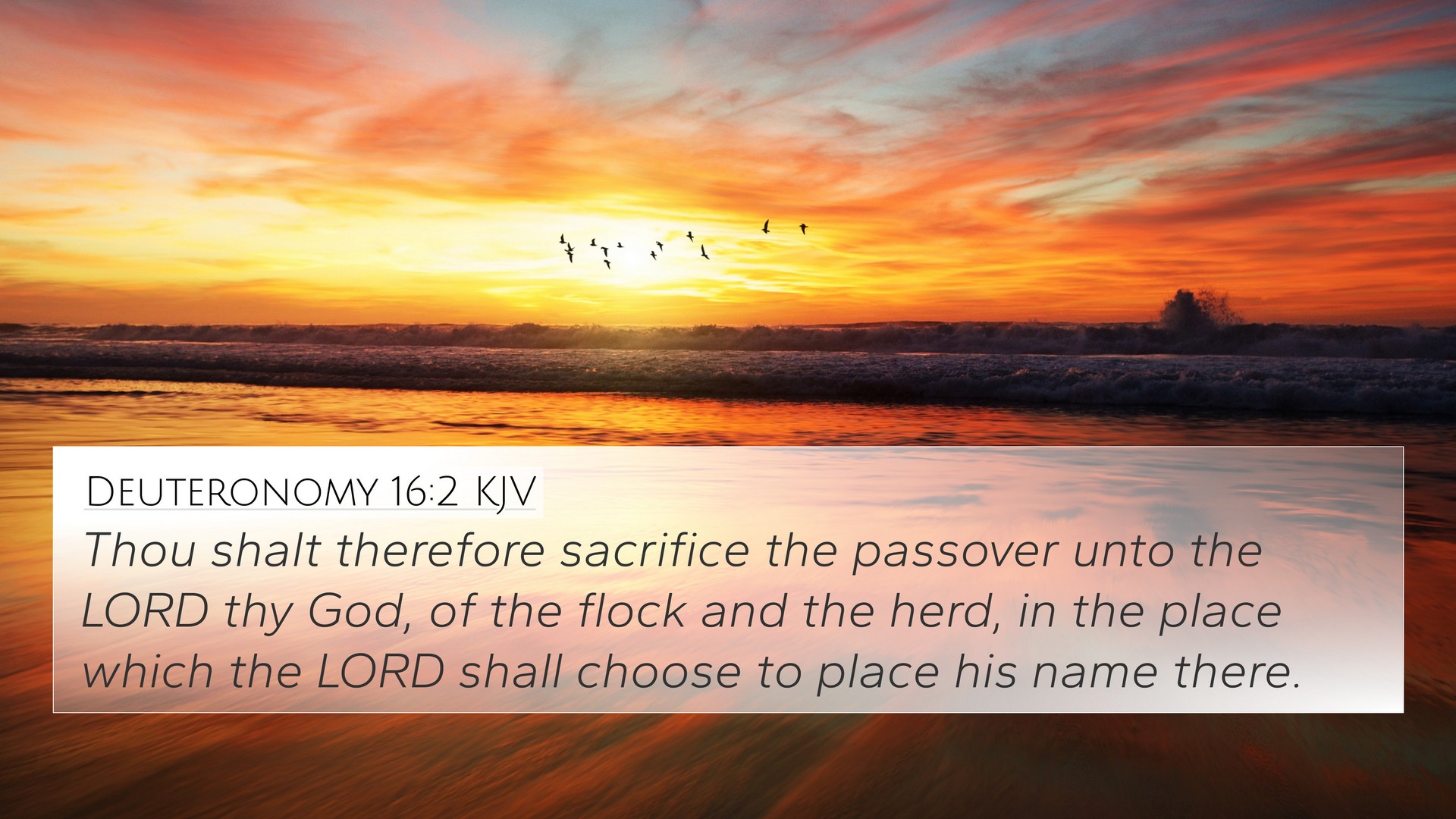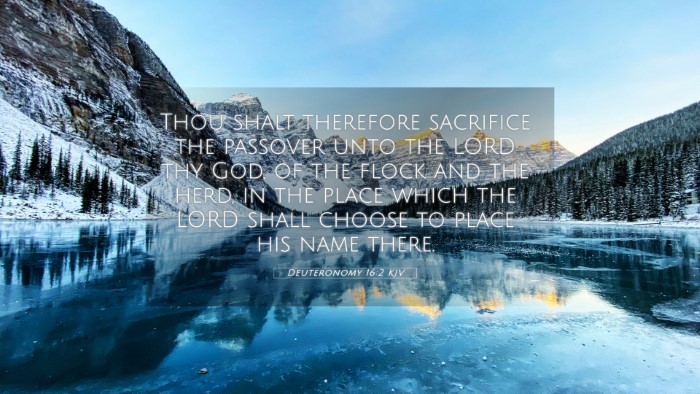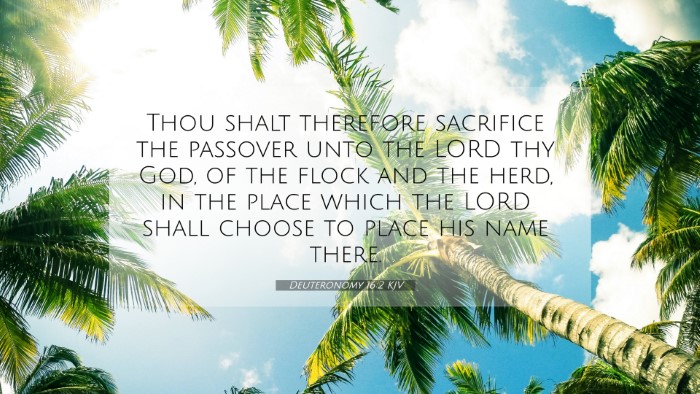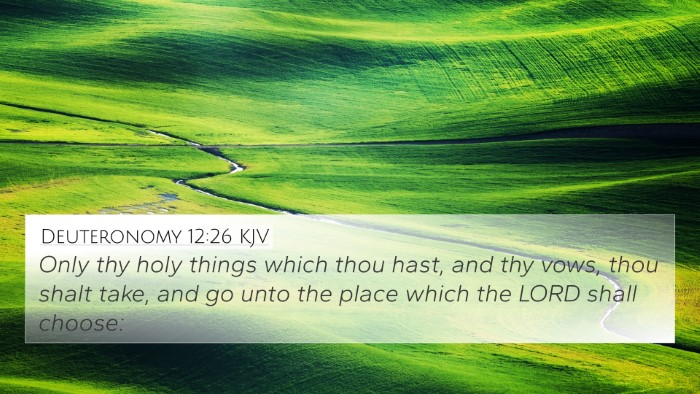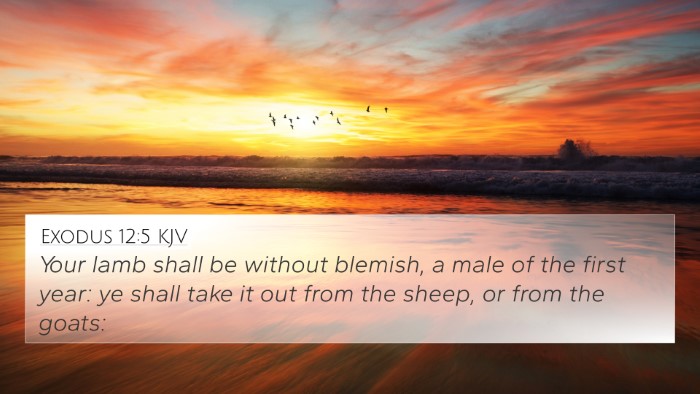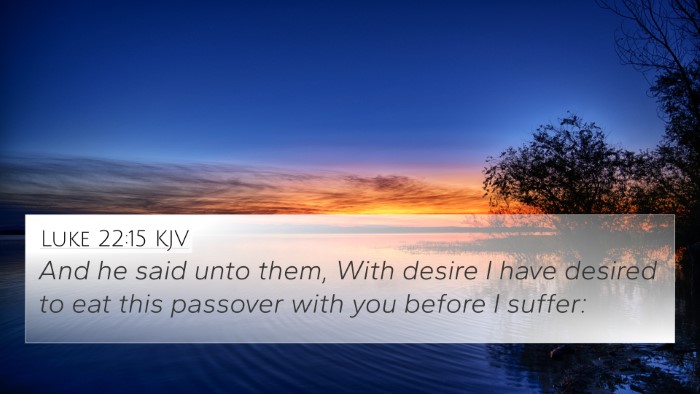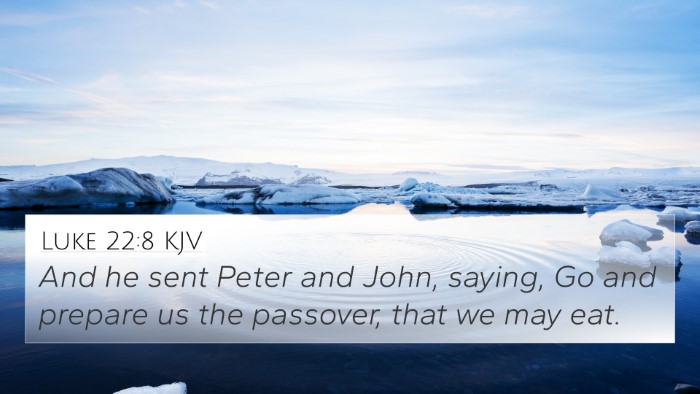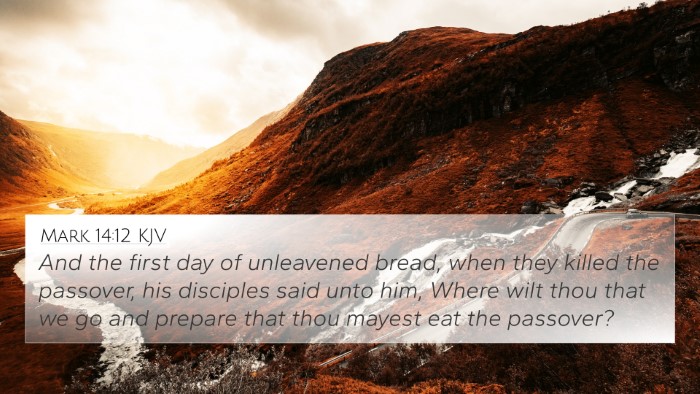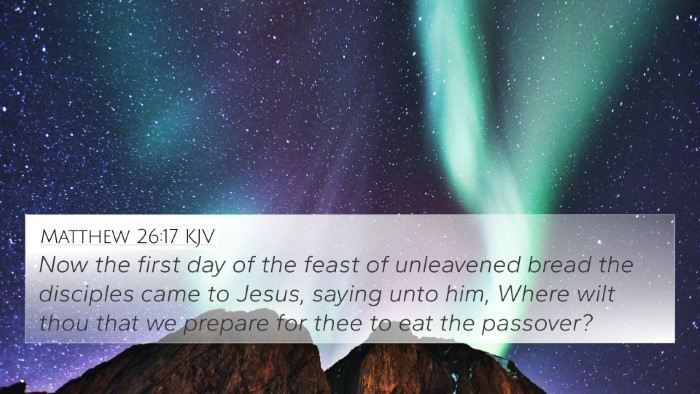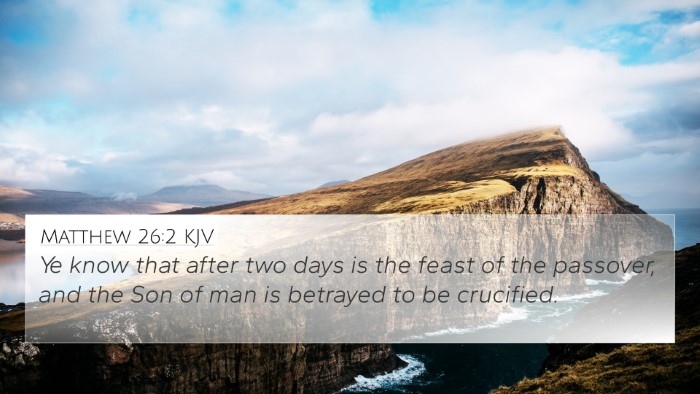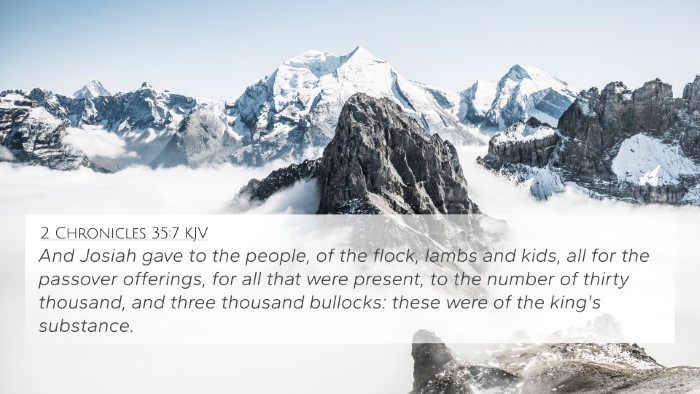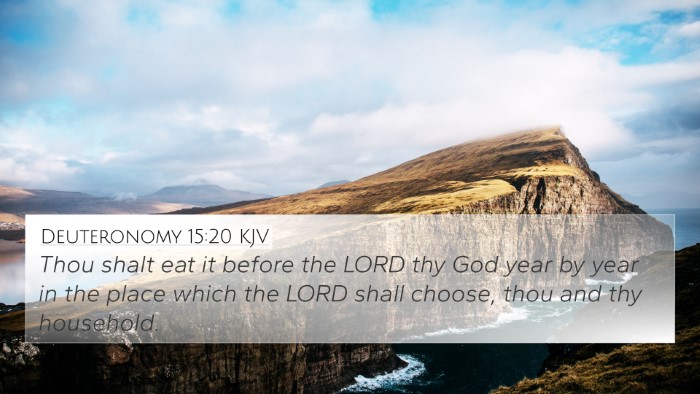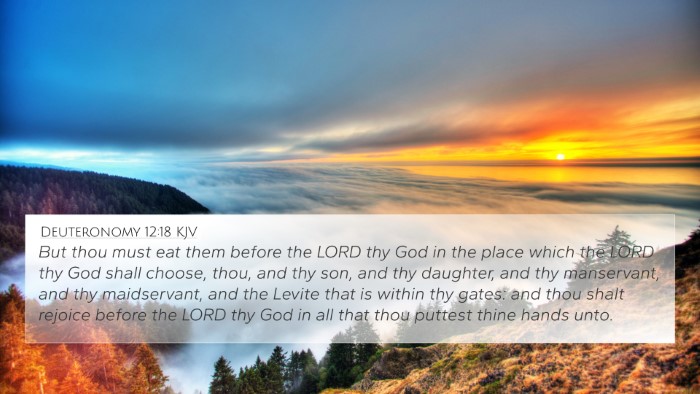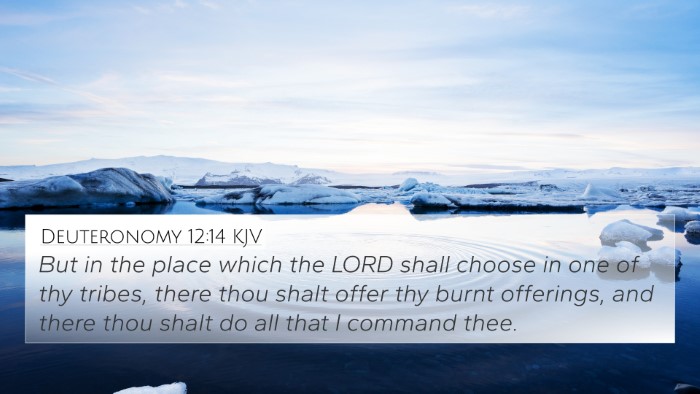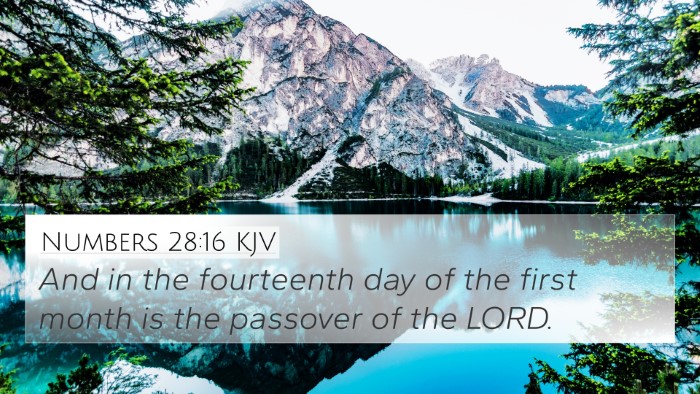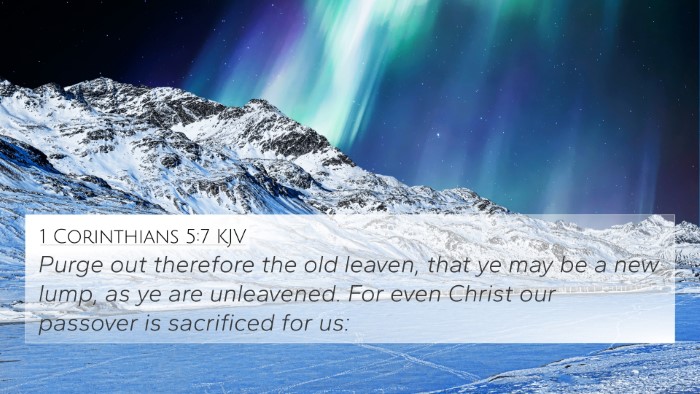Understanding Deuteronomy 16:2
Deuteronomy 16:2 states, "Thou shalt therefore sacrifice the passover unto the LORD thy God, of the flock and the herd, in the place which the LORD shall choose to place his name there." This verse highlights the importance of sacrifice and worship in the Israelite community, particularly as it pertains to the Passover, a pivotal event in their history.
Significance of Sacrifice
According to Matthew Henry, the act of sacrificing is not merely a ritual but a profound act of devotion and commemoration of God's deliverance during the Exodus. This sacrifice symbolizes both atonement and gratitude, establishing a relationship between the Israelites and God.
Importance of Place
Albert Barnes emphasizes that the "place which the LORD shall choose" indicates that God desires to be worshipped in a holy setting. This reference signifies that worship should not be haphazard but defined by divine appointment, reinforcing the sacredness of communal worship in Israel.
Passover Context
Passover is foundational in Jewish tradition, serving as a reminder of their liberation from slavery in Egypt. Adam Clarke explains that this feast not only commemorates the historical acts of deliverance but also foreshadows the ultimate sacrifice of Christ in the New Testament, creating a rich inter-Biblical dialogue.
Cross-References
- Exodus 12:21-27 - The original institution of Passover.
- Deuteronomy 5:14 - The Sabbath as a reminder of God's rest and a time for holy observance.
- Leviticus 23:5 - Details regarding the Passover feast.
- Hebrews 10:1 - The shadow of good things to come, relating to sacrifices in the Old Testament.
- 1 Peter 1:19 - Jesus as the "lamb without blemish" reflecting Passover themes.
- John 1:29 - John's declaration of Jesus as the Lamb of God.
- Matthew 26:17-19 - Jesus’ observance of Passover at the Last Supper.
Thematic Connections
The connections between Bible verses illuminate the overarching themes of sacrifice, redemption, and placing one's faith in God's sovereignty. The thematic resonance of worship in the chosen place underlines God’s desire for genuine relationship and community among His people.
Inter-Biblical Dialogue
This dimension invites us to explore how the themes of Deuteronomy 16:2 resonate across both the Old and New Testaments. The act of sacrifice transcends the original context, becoming a precursor to understanding Jesus’ sacrifice. The continuity of God's covenantal promises invites deeper reflection on the nature of worship and remembrance among believers today.
Comparative Bible Verse Analysis
When conducting a comparative study, we can explore how other scriptures reinforce the significance of sacrifice and proper worship. This analytical approach offers tools for textual cross-referencing that enhance our understanding of God’s consistent message throughout the Bible.
Cross-Referencing Methodology
For those looking to enhance their study, employing a Bible concordance or a cross-reference guide can facilitate the process of identifying connections. It is beneficial to engage in cross-referencing Bible study methods to uncover deeper theological insights.
Conclusion
In summary, Deuteronomy 16:2 serves as a crucial point of reflection for understanding the foundation of worship within the Israelite tradition. This verse not only calls for a physical act of sacrifice but also evokes spiritual themes that reverberate through scripture and the believer's life today. By exploring connections between Bible verses, we enrich our understanding of scripture and deepen our relationship with God.
